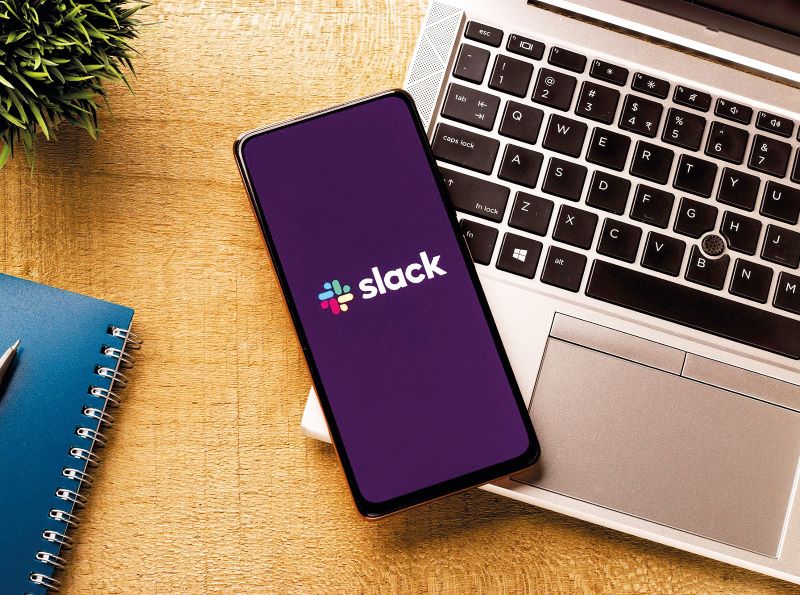
Artifact is a personalised news aggregator that uses machine learning to summarise articles based on your interests (Photo: Artifact)
A constellation of new digital platforms, backed by a crew of starry tech experts, is eyeing an opportunity to shake up the status quo. Here are a trio of personal helpers to reorient your lifestyle.
WHAT IT REALLY IS: From US representative Alexandria Ocasio-Cortez to TV personality and model Chrissy Teigen, more weary users are switching camps to join Bluesky as it has come the closest to mimicking Twitter’s tone and feel. That is no coincidence, as former Twitter CEO Jack Dorsey is now the newly launched app’s chief executive. His latest creation has been downloaded 375,000 times from the Apple Store worldwide since its launch in February, and part of what may be driving the hype is Twitter’s fall from grace as it started removing the coveted blue check marks from previously verified accounts that had not paid the US$8 (RM35.70) monthly fee for their subscription programme. Many netizens, including scientists, journalists and activists, find the move damaging as they depend on the “symbol of reliability” to debunk misinformation.
THE MECHANICS: Offering many of the same core features Twitter does, Bluesky allows users to post quick updates in the form of photos and texts; reply to followers; and share posts by others. By operating on a decentralised system, people may eventually be able to build their own communities within it or cross-post content across different social networks.
CLICHE OR CACHE(T): You have heard of Mastodon — and possibly forgotten your password by now due to its inactivity — whose user base fell from a peak of 2.5 million people in December 2022 to 1.8 million in the first week of 2023. Will Bluesky suffer the same fate? Perhaps not, as hundreds of creators and journalists have quickly reestablished the connections they previously made on Twitter. Plus, the approval of powerhouses such as the aforementioned personalities are seen as marking a monumental shift in online content consumption culture.
TAP IT? You should, if you can get past the strict velvet rope. Still in the private beta stage, Bluesky, originally limited to an exclusive group of tech insiders and disruptors, currently has one million people on the wait list. For now, it is only accessible with an invitation code from someone already on the platform, and a user needs to be active for a set amount of time before they receive the link. Word on the inside is that the cheery Bluesky is nothing like the calamitous grey storm brewing in Musk’s headquarters — people are already calling posts on the shiny, buzzy app “skeets”, as a play on tweets.
WHAT IT REALLY IS: Instagram co-founders Kevin Systrom and Mike Krieger, who departed Facebook in 2018 amid tensions with their parent company, launched a personalised news aggregator that uses machine learning to summarise articles based on your interests. It seeks to serve “high-quality information”, doubling down on efforts to include only publishers who adhere to strict editorial standards such as fact-checking, journalism integrity and data transparency. Its artificial (AI)-powered system will be optimised to measure how long you spend studying various subjects — as opposed to, say, what garners the most clicks, likes and comments — in an effort to reward users more deeply with engaging material.
THE MECHANICS: The app opens to a wide selection of popular as well as trending articles handpicked from a curated list of established news organisations namely The New York Times and
Wall Street Journal, and small-scale specialised blogs about niche topics or hobbies. Once Artifact’s algorithm learns your behaviour and preferences, it will continue to recommend you similar posts and stories in the future. You can also choose to consume news in a certain style with prompts such as “explain it like I am five” or “describe this concept that will appeal to a Gen Z”.
CLICHE OR CACHE(T): Artifact’s concept is not entirely ground-breaking as a wave of personalised news apps with names like Pulse and Zite — dogged by their inability to develop meaningful habits and retaining power with users — came and went. Worse, Tokyo-based SmartNews, which utilises similar AI technology, laid off 40% of its workforce in the US and China due to a dwindling user base and a cut-throat advertising market.
TAP IT? Like most start-ups on the rise with teething problems, Artifact has yet to commit to a business plan but Systrom has begun thinking about revenue-sharing deals with publishers. Not only will a polished interface help readers discover new publications and encourage digital subscriptions, but the same craftsmanship that vaulted Instagram to its popular status will also lift the current depressed state of print publishing. Download it for now, and hope the developers will do more than simply crank out a list of interesting links.
WHAT IT REALLY IS: With the rise of remote working, more offices are using Slack as a way of trading information within the company, facilitating crossovers and scheduling tasks. But there are times when we struggle to keep up with the numerous threads and direct messages that weave their way through the system. OpenAI’s ChatGPT comes to the rescue by partnering with Salesforce to create an app that automatically writes simple messages, summarises meetings and crafts instantaneous replies to your colleagues. Additionally, it can help you find answers on any project or topic so you can stay updated.
THE MECHANICS: Before we get down to brass tacks, it is crucial to familiarise yourself with EinsteinGPT, Salesforce’s own take on OpenAI’s ChatGPT model for customer relationship management software systems. The new app, designed mainly for creative ideation, combines knowledge found in Slack with the intelligence of ChatGPT, empowering customers with the information they need to usher work forward. Like most early adopters, this platform with a conversational interface is still in beta and requires waiting, but you will have a better chance of being accepted if you are part of a larger organisation.
CLICHE OR CACHE(T): The same vapid buzzwords like “hyper-growth” and “scalable tech” were being thrown around when this collaboration was announced, leading many to wonder if it could live up to its promise of making people more productive. With a machine that does most of the writing, will the market be flooded by AI-generated marketing sales pitches? Not so fast, but also not so distant in the future.
TAP IT? Slack is a great helper, but it can also result in a surfeit of information, as keeping up with conversations that criss-cross channels can seem like a full-time job. In fact, chat has gone from being a minuscule part of the workday to the second-most-common activity behind email. Having said that, Slack, soon to be souped up with another digital great, will benefit those already using the productivity tool as it will capitalise on the vast trove of online data ChatGPT has been trained on. Just remember: Although an AI-powered assistant may appear to be impressively good at condensing information or generating boilerplate emails, they lack the emotional quotient to craft the best responses.
This article first appeared on May 8, 2023 in The Edge Malaysia.





